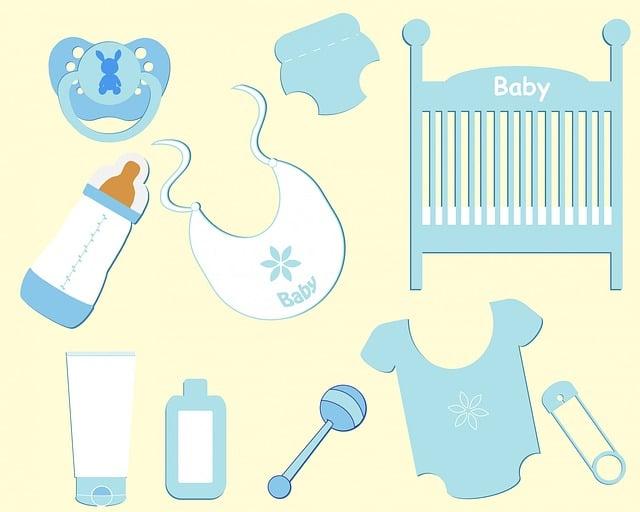Dive into the world of diaper ingredients, where science meets comfort in the realm of baby care. Discover the secret formulas behind those soft, absorbent layers that keep your little one snug and dry. Unveil the fascinating components that make up these everyday essentials, shedding light on the unsung heroes of diaper technology. Let’s embark on a journey through the fascinating realm of diaper ingredients, where every element plays a crucial role in keeping your baby happy and content.
Table of Contents
- Understanding the Components of Diapers
- Key Ingredients in Baby Diapers Explained
- Choosing Safe and Gentle Materials for Diaper Construction
- Recommendations for Diaper Ingredients Selection
- Q&A
- Wrapping Up


Understanding the Components of Diapers
In the world of diaper manufacturing, it’s fascinating to delve into the intricate components that make up these essential products. Each diaper is a carefully crafted blend of materials designed to provide comfort, protection, and absorbency for both babies and parents alike.
From super absorbent polymers to soft inner linings, diapers are a synergy of various elements working together harmoniously. Let’s uncover the secrets behind the layers that keep our little ones dry and happy.


Key Ingredients in Baby Diapers Explained
Ever wondered what makes up those trusty baby diapers? Let’s dive into the fascinating world of diaper ingredients to uncover the secrets behind these essential baby care products.
In a typical baby diaper, you’ll find a blend of innovative materials designed to keep your little one dry and comfortable. Here are some key ingredients you might spot on the label:
- Super Absorbent Polymers (SAP): These highly absorbent materials lock in moisture, preventing leaks and keeping your baby’s skin dry.
- Soft Inner Linings: Gentle materials like cotton or microfiber provide a soft and comfortable layer against your baby’s delicate skin.
- Waterproof Outer Layer: A sturdy yet breathable outer layer made of materials like polyethylene keeps wetness contained while allowing airflow.
| Ingredient | Function |
| SAP | Super absorbency |
| Inner Linings | Softness and comfort |
| Outer Layer | Waterproof protection |


Choosing Safe and Gentle Materials for Diaper Construction
When it comes to diaper construction, the materials used play a significant role in ensuring the comfort and safety of your baby. Opting for **biodegradable materials** not only benefits the environment but also reduces the risk of irritation on delicate skin. Materials like **organic cotton**, **bamboo**, and **corn-based polymers** are gentle options that provide both softness and absorbency, making them ideal choices for eco-conscious parents.Another essential aspect to consider is the absence of harmful chemicals in the diaper ingredients. Look for diapers that are free from chlorine, latex, fragrances, and parabens to minimize the risk of skin reactions or sensitivities. Choosing diapers with certifications such as OEKO-TEX Standard 100 or Global Organic Textile Standard (GOTS) can give you peace of mind knowing that the materials used meet strict safety and environmental standards. Prioritizing safe and gentle materials in diaper construction is not only beneficial for your little one’s well-being but also contributes to a healthier planet for future generations to come.

Recommendations for Diaper Ingredients Selection
In the quest for the perfect diaper ingredients, it’s essential to prioritize both effectiveness and safety. Opt for natural components that are gentle on your baby’s delicate skin while also ensuring maximum absorbency. Look for organic cotton, known for its softness and breathability, to keep your little one comfortable all day long.Consider incorporating bamboo fiber into the mix for its hypoallergenic properties and sustainable nature. Adding a touch of aloe vera extract can provide soothing benefits for sensitive skin, making diaper changes a more pleasant experience for your baby. Embrace biodegradable materials that are eco-friendly and contribute to reducing environmental impact, showing your commitment to a greener future. In your journey to selecting the ideal diaper ingredients, remember that a combination of quality, safety, and sustainability is key to keeping your baby happy and healthy.
| Ingredients | Benefits |
|---|---|
| Organic Cotton | Soft and breathable |
| Bamboo Fiber | Hypoallergenic and sustainable |
| Aloe Vera | Soothing properties for the skin |
A: Diapers typically contain materials such as absorbent polymers, adhesives, polyethylene, polypropylene, and fragrance.
Q: Are there any harmful chemicals in diapers?
A: While most diaper ingredients are considered safe, some studies suggest that certain chemicals like dioxins and phthalates may pose potential risks.
Q: How do the absorbent polymers in diapers work?
A: Absorbent polymers in diapers have the ability to absorb and retain liquid, keeping babies dry and comfortable for extended periods.
Q: Why are adhesives used in diapers?
A: Adhesives in diapers help secure the various layers of the diaper together, ensuring a snug fit and preventing leaks.
Q: What is the purpose of using fragrance in diapers?
A: Fragrance is often added to diapers to mask odors and provide a pleasant scent, enhancing the overall diapering experience for caregivers.
Q: Are there eco-friendly alternatives to traditional diaper ingredients?
A: Yes, some brands offer eco-friendly diapers made from biodegradable materials like bamboo or organic cotton as sustainable options for environmentally conscious consumers.




0 Comments